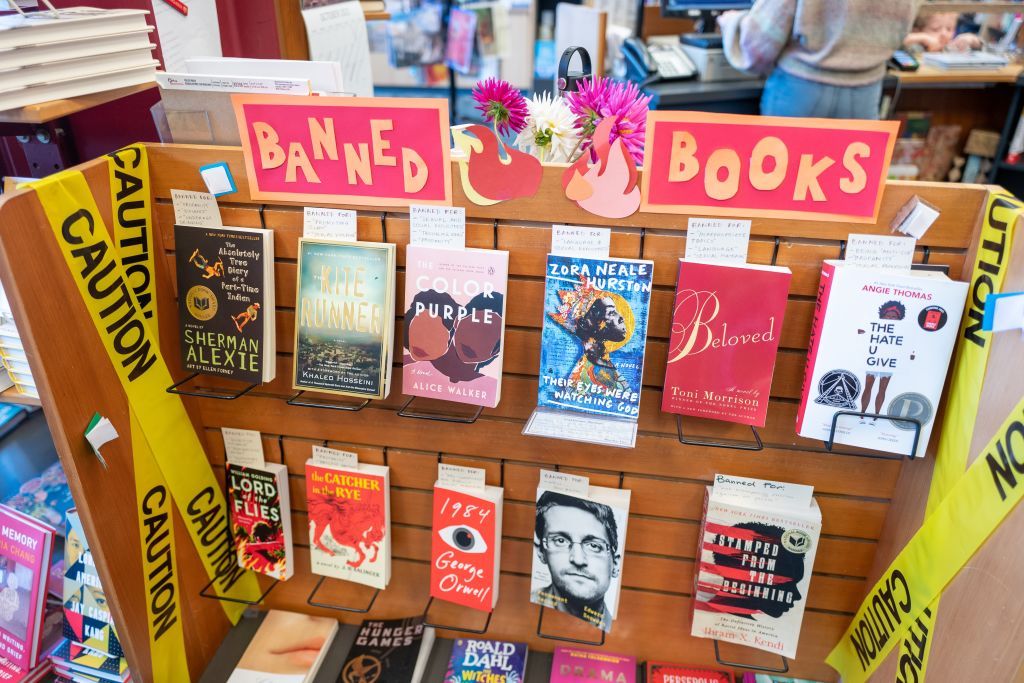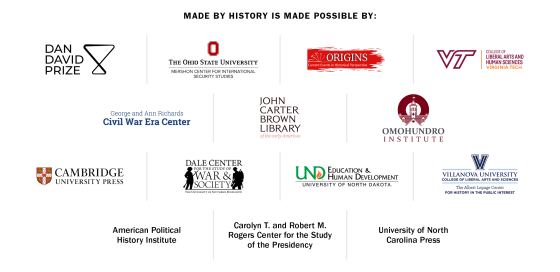Book bans aren't the only threat to literature in American classrooms.

This first week of October is the American Library Association’s Banned Books Week. According to a recently released report by the advocacy group PEN America, which tracks book bans, the past school year saw a record-high 3,362 bans, which restricted access to 1,557 different books. More broadly, a culture of censorship has beset American schools, affecting students, highly qualified teachers, and librarians.
[time-brightcove not-tgx=”true”]The huge spike in school censorship, along with the proliferation of state laws driving it, are alarming signs for our democracy. But another, less remarked-upon threat is the diminishment of literature itself in American schools.
Read more: New Report Finds That Book Bans Have Reached Their Highest Levels Yet
Today, thanks to state standards and high-stakes examinations, teaching literature has been largely reduced to instilling “College and Career Readiness.” Because standardized exams test students using short reading passages, teachers are pressured to expose students only to bits and pieces of books, instead of novels or other whole works, a problem recently documented by a team of Stanford and Temple University researchers. Readers are asked to “determine” or “analyze,” but not to empathize, reflect, or debate.
In a break from the past, we have lost sight of literature as a social good. To appreciate what we are losing and to reaffirm literature’s civic value, it is useful to revisit a moment when Americans were similarly concerned about the precariousness of democracy—and in response, a visionary educator powerfully articulated the important role that teaching literature could play in sustaining it.
In the 1930s as fascism rose to power in Europe and gained in popularity at home, literary and educational theorist Louise Rosenblatt argued that “the study of literature can have a very real, and even central, relation to points of growth in the social and cultural life of a democracy.” In her view, the classroom should be a laboratory for democracy where students could encounter, inhabit, and try out other points of view. Through the process of testing their ideas in the classroom community, students could further develop empathy and imagination, capacities that Rosenblatt saw as essential traits for citizens to possess and critical to the functioning of a democratic society.
Rosenblatt was also reacting to two prevailing approaches in English classrooms that she hoped to counter. First, she opposed instruction that reduced literature to “didactic or moralistic” messages. Memorizing and reciting poems like Ralph Waldo Emerson’s “Concord Hymn,” or reading stories such as Edward Everett Hale’s “The Man Without a Country,” reflected the “craving for some easy, reassuring formula,” she thought. Being spoon-fed patriotism, Rosenblatt believed, made youth vulnerable to anti-democratic ideologies that promised something easier and better. The educational theorist, like her contemporary, the Progressive philosopher John Dewey, wanted students to learn to think for themselves, and to grapple with the moral and civic ambiguities that literature presented.
Read more: The Extreme New Tactic in the Crusade to Ban Books
Rosenblatt was pushing back not only against rote learning and the oversimplification of literature in America’s schools, but also against the New Criticism, an approach that was beginning to dominate instruction at the college level. In particular, the New Critics emphasized consensus and continuity over debate, a theory that—unlike Rosenblatt’s approach to reading—ignored the reader.
Rosenblatt’s Literature as Exploration, published in 1938 for the Progressive Education Association’s Commission on Human Relations, argued for a method of teaching literature that valued equally books and their readers. The book went through five editions, and Rosenblatt’s ideas shaped generations of teachers. She offered them a way to encourage their students to foster the kinds of relationships with literature that had led many teachers to enter the profession.
Her theories eventually found their heyday in the 1980s and 1990s, when reading lists finally started to diversify and more students could see their own life experience represented in the literature they were assigned.
By 1995, the year of the latest edition of Literature as Exploration, the threats to democracy in American culture and the literature classroom were fundamentally different than they had been in the 1930s and during the Cold War. But new pressures appeared; now the culture wars were aflame.
Rapidly rising censorship attacks led the National Council of Teachers of English to draft and adopt “The Students’ Right to Read” in 1981, yet the challenges kept coming, fueled by conservative watchdog groups such as Phyllis Schlafly’s Eagle Forum and Pat Robertson’s National Legal Foundation. Alice Walker’s The Color Purple, Maya Angelou’s I Know Why the Caged Bird Sings, and much of Judy Blume’s opus, which had become common works in the curriculum, came under fire by critics on the right.
Read more: A Visit to the Banned-Book Bus With Kimberlé Crenshaw
The battles over what students read in the 1990s obscured a broader shift in the goals of literature instruction. Gone were Rosenblattian skills best learned in community. A focus on individualized aptitude, as measured by analyzing short passages on standardized tests, became ascendant. This standardization was driven by some of public schools’ noblest ideals—equality and ensuring everyone received a quality education in the same skills—coupled with our national obsession with efficiency and bureaucracy.
The empirical skills that exams privileged might be useful for institutions and corporations that depended on efficient workers, but they were less useful for navigating the nuances and challenges of civic life in a democracy. And the approach turned reading into a chore, or what English educator Kelly Gallagher has coined Readicide.
Rosenblatt passed away in 2005, at age 100. Her career lasted until the beginning of the standardized testing era, with the No Child Left Behind Act in 2001. Reflecting on this longevity, she concluded, “I am aware of how many problems face our society, how many reactionary tendencies affect our education system.” She saw that the threat to democracy was always present; the source changed more than the impulse.

Contemporary teachers know this well. In summer workshops funded by the National Endowment for the Humanities, teachers have come together from around the country, where we teach in varying political environments with different levels of professional autonomy. Across the board, teachers have shared the concern that in this moment of intense anti-democratic threat, literature’s value in the curriculum, rather than being bolstered, is being deeply compromised.
Reading is losing to “rigor,” but it is a rigor without core beliefs or commitment to democracy as Rosenblatt understood it. This loss threatens not only our students’ development as readers, but also their sense of community, within and beyond the classroom: local, national, global. It is a learning outcome that transcends quantification and that should concern us all.
Jonna Perrillo is professor of English at the University of Texas, El Paso, the NCTE Council Historian, and author of Educating the Enemy: Teaching Nazis and Mexicans in the Cold War Borderlands. Andrew Newman, professor and chair of the English department at Stony Brook University, is working on a cultural history of the “high school canon.” They co-directed the National Endowment for the Humanities 2023 Summer Institute for K-12 Teachers, “Making the Good Reader and Citizen: The History of Literature Instruction in American Schools.”
Made by History takes readers beyond the headlines with articles written and edited by professional historians. Learn more about Made by History at TIME here.